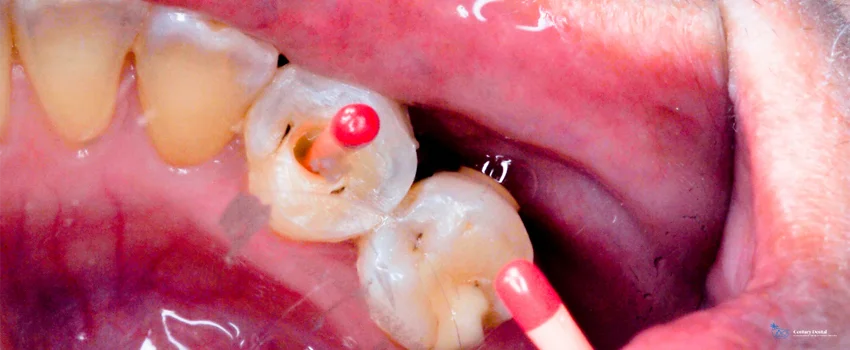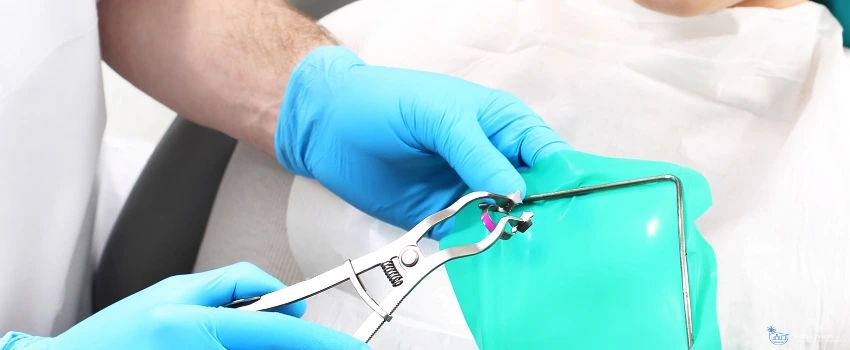When visiting the dentist for pain, the first step is to identify the cause. In tooth decay or infection cases, you may need a root canal treatment to save the tooth.
Root canal treatment is necessary to save the tooth, prevent the spread of infection, and preserve the surrounding teeth’s health. You can opt for tooth extraction but it can be more invasive and costly than root canal treatment. In addition, root canal removal saves the natural tooth.
What Is Root Canal Treatment
Root canal treatment is a procedure that removes damaged or infected pulp from inside a tooth and seals it. The procedure is painless and it relieves discomfort and prevents further damage to your teeth.
Root canal treatment costs depend on the extent of the damage and the type of tooth. Usually, molars costs more than the other teeth. Compared to tooth extraction, root canal treatment is a lot cheaper because it’s a simple and straightforward procedure that preserves the natural tooth structure.
To learn more about how effective this treatment is, here’s an overview of the root canal process:
- Applying anesthesia – Before the procedure, the dentist will apply numbing cream to your gums. After that, they will administer anesthesia so you will only feel a slight and quick pinch. Patients are usually awake during this procedure but won’t feel any pain.
- Removing the pulp – After the anesthesia takes effect, your dentist will create a small opening on the decayed or infected tooth to expose the pulp. Once the pulp is exposed, the dentist will use a file, a tool that cleans the tooth canal.
- Applying the antibiotics – After removing the pulp, the dentist will use a topical antibiotic on the area to avoid possible infection or reinfection. Your dentist may also prescribe oral antibiotics to aid your healing.
- Placing temporary fillings – Your dentist will set a temporary filling to seal your tooth from food debris or saliva that can damage the tooth canal.
Benefits of Root Canal Treatment
After going through the root canal process, you will eventually reap the benefits of the procedure. Here’s what to expect after root canal treatment:
1. Improves Oral Health
The main advantage of root canal removal is that you’ll improve your overall oral health through removing infected areas.
2. Prevents Infection
After the root canal treatment, the tooth is usually covered with a crown or filling to protect it from further damage or infection. Your tooth will remain healthy and disease-free with proper oral hygiene like regular brushing and flossing, and routine dental checkups.
3. Restores Function
After the root canal treatment, the treated tooth is filled, which helps to restore the tooth’s structural integrity. Covering the tooth ensures it remains functional, stable, and free from further decay.
In addition, the restored tooth allows for proper biting and chewing function, preventing additional strain on the surrounding teeth and reducing the risk of other dental issues.
4. Preserves Natural Appearance
Aside from restoring your tooth’s function, root canal removal also preserves the natural tooth. After removing the pulp, the dentist will just fill your tooth with a filling or crown to ensure that it seamlessly blends in with your other teeth.
Additionally, preserving the natural tooth structure helps prevent the need for more invasive and costly dental procedures, such as dental implants or bridges, which can also impact your smile’s appearance.
Side Effects of Root Canal Treatment
Just like other medical procedures, root canal treatments come with risks and side-effects. However, these should not deter you from getting the necessary treatment. Fortunately, the side-effects and risks associated with root canal removal are manageable and preventable.
Here are a few potential risks to be aware of:
- Difficulty finding all roots – In some cases, the dentist might have difficulty finding all roots. If one is left untreated, the infection might spread until it reaches the bone.
- Damage to the root canal – Sometimes, things happen during the procedure due to human or tool error. During the procedure, the dental instrument may cause damage to the root or the canal, making it difficult to fill the tooth.
- Failure of the temporary filing – There are rare cases where the temporary filing fails to cover the entirety of the root canal, causing infection to continue spreading.
If you experience any of these side effects, there’s no need to be alarmed. It’s best to consult a dentist for the proper instructions and prescriptions needed. You’ll be fine if you follow their recommendations and instructions.
Key Takeaway
Root canal treatment is an effective dental procedure that can alleviate any toothache caused by infection. Rather than extraction, root canal treatment is less costly and preserves your tooth’s natural appearance. It’s important to note that while the procedure has many manageable side effects, it also comes with many benefits. If you need help alleviating your side effects or a professional root canal treatment, visit a trusted dentist.
Get the best root canal treatment at Century Dental!
If you’re looking for a trusted dentist in Treasure Island, FL visit Century Dental! We have a team of professional dentists that can provide painless and safe root canal treatment. Book a dental appointment with us!







